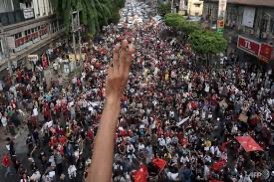Projects
| The Digital Divide and Fulfilling the Human Right to Education in Western SydneyThe Covid-19 pandemic has highlighted the importance of digital connectivity in daily life. Access to reliable internet and adequate data has been critical in mitigating the impact of stay-at-home restrictions. The impact of digital exclusion has been particularly pronounced in Western Sydney. In such an environment, there is a need to equip Australian governments and stakeholders with an understanding of what worked and what did not in the provision of education during the Covid-19 pandemic and how to best provide free education for all Australian children, including Aboriginal and Torres Strait Islander children and those from lower socio-economic backgrounds, in Western Sydney in the future. This project is led by Associate Professor Azadeh Dastyari with Professor Catherine Renshaw, Associate Professor Tanya Notley, Professor Anna Cody, Dr Jennifer Whelan, and Dr Michael Stevenson. |

| The Application of Human Rights Principles in Public Health EmergenciesCOVID-19 is the first pandemic to profoundly affect the lives of all Australians in more than a century: those who have contracted it, their loved ones, those who must treat it, and all affected by the measures designed to stop its spread. In addressing COVID-19, governments must consider the human rights of individuals affected by their response to the virus. This project aims to improve how human rights principles are applied in public health emergencies |

| Children’s Rights in the time of Covid-19The Covid-19 pandemic has greatly impacted the human rights of children in Australia. However, the consequences of federal and state government responses to limit the spread of the virus have particularly disadvantaged already marginalized communities. The pandemic has highlighted existing fault lines in the protection of children and exacerbated inequalities in Australian society. This project aims to analyse the State and Federal response to the pandemic and its impact on the rights of children. It will also assess the exacerbating effect of socio-economic disadvantage; race; disability and sex on child rights during periods of lockdown and restriction. |
 | COVID-19 Civil Disobedience: Regulating Public Assembly During a PandemicThe COVID-19 pandemic has required state-based legislation in an attempt to curb the potential spread of the virus. This legislation has granted extraordinary powers to regulate public movement while increasing penalties and enforcement powers held by the police. Simultaneously, peaceful assemblies of people committing civil disobedience have broken out in response, concerning two predominant issues: the systemic inequalities faced by Aboriginal and Torres Strait Islanders at the hands of state police forces and the belief that the regulations are unjustified and that COVID-19 is actually a conspiracy. This project aims to analyse the restrictions placed of the freedom of public assembly as a result of the COVID-19 pandemic. It will also examine the civil disobedience committed during this period of restriction and the countervailing justifications and the response from law enforcement. |
| The Australia Myanmar Constitutional Democracy ProjectThe Australia Myanmar Constitutional Democracy Project is a consortium of legal scholars from a range of universities, formed in 2013. Since then, the Project has conducted a series of workshops in different centres around Myanmar with lawyers, judges, politicians, journalists, students, activists from civil society, ethnic leaders, and interested members of the public <https://www.law.unsw.edu.au/research/centres-and-institutes/southeast-asia-law-and-policy-forum>. The aim of the workshops has been to foster discussion of the fundamental principles informing constitutional democracy, departing from the premise that constitutional democracy cannot be sustained unless it is built from the bottom up by the people themselves. The WSU representative of the Project is Professor Catherine Rensha Media release from Australia-Myanmar Constitutional Democracy Project |




